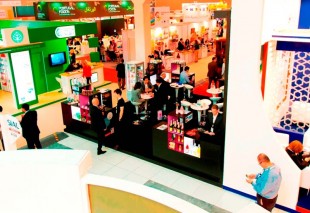

Middle East F&B start-ups lack business knowledge

Start-up F&B companies have a big opportunity to out-play their multinational counterparts in a booming MiddLE East food sector, but lack core business components to ensure their enterprises stay afloat, according to a venture capitalist and food entrepreneur.
International food marketing company Bridgepoint Foods managing director Uzair Anjarwalla said that F&B start-ups in the Middle East can have a profound impact on a multi-trillion dollar global food sector, but entrepreneurship training, availability of venture capital, and high risk aversion are some of the key challenges holding them back.
“The food sector is worth US$4 trillion worldwide with stable and increasing growth rates, while the Middle East is one of the fastest growing regions within the industry,” said Anjarwalla, a speaker at this month’s SIAL Middle East Conference.
“The biggest advantage that F&B start-ups have over their multinational counterparts is innovation. It has been proven that it is extremely difficult for large players to innovate as they are managed in a way that doesn’t encourage disruptive innovation and risks. Start-ups on the other hand have a huge opportunity as long as they correctly address market gaps and innovate.
“However, many fail because their business strategies can be weak, they have partnership issues and disagreements within the highly stressful first year of starting up, or venture capital is either not available or is not being invested into the right business processes.”
He highlighted recent examples of start-up success stories in the region, including beverage manufacturer Aujan Industries, where, in 2012, Coca Cola bought a 50% stake in the firm for US$ 980 million. Others include confectionary retailers Bateel and Patchi; soft drink manufacturer Freez; and restaurants Just Falafel, and the Noodle House.
“The GCC and wider Middle East, although not a big food producer, is a fertile ground for developing F&B brands, whether in the Consumer Packaged Goods (CPG) space or in the retail space,” added Anjarwalla . “Because the region is at the cross-road of trade and culture and an excellent supply chain hub, Middle Eastern F&B concepts can be exported to the world.”
Looking to address these challenges, Anjarwalla will outline at the SIAL Middle East Conference how F&B start-ups can build a roadmap to ensure their businesses prosper. The three-day conference from November 24-26, 2013, is a feature of SIAL Middle East,held under the strategic partnership of Abu Dhabi Food Control Authority (ADFCA).
Now in its fourth year in Abu Dhabi, SIAL Middle East is part of SIAL Group, the world’s largest network of professional B2B food exhibitions which include SIAL Paris, SIAL China, SIAL Canada, SIAL Brazil, and SIAL ASEAN in the Philippines.